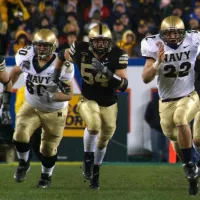Rutgers University, officially the State University of New Jersey, is a public land-grant research university with three campuses. Chartered in 1766 as Queen's College, it was affiliated with the Dutch Reformed Church. As the eighth-oldest college in the US, the second-oldest in New Jersey, and one of the nine colonial colleges, Rutgers holds significant historical importance.
1900: Scarlet Officially Made School Color
In 1900, the board of trustees officially made scarlet the school color for Rutgers University.
1906: Rutgers Day Established
Rutgers Day, an annual festival, was established in 1906.
1914: Division into College of Engineering
In 1914, the Rutgers Scientific School divided into the College of Engineering.
1915: Selman A. Waksman Graduates
In 1915, Selman A. Waksman graduated from Rutgers University.
1916: Selman A. Waksman Graduates
In 1916, Selman A. Waksman graduated from Rutgers University.
1918: Creation of New Jersey College for Women
In 1918, Rutgers created the New Jersey College for Women.
1919: Paul Robeson Graduates
In 1919, Paul Robeson graduated from Rutgers University.
1921: Accreditation by the Commission on Higher Education
In 1921, Rutgers was accredited by the Commission on Higher Education of the Middle States Association of Colleges and Schools.
1921: Division into College of Agriculture
In 1921, the Rutgers Scientific School divided into the College of Agriculture.
1924: Ozzie Nelson Quarterback
From 1924, Ozzie Nelson was quarterback of the Rutgers team.
1924: Creation of School of Education
In 1924, Rutgers created the School of Education.
1924: Rutgers Becomes a University
In 1924, with the development of graduate education and expansion, the collection of schools became Rutgers University.
1925: Chanticleer Becomes Mascot
In 1925, the mascot at Rutgers was changed to Chanticleer, a fighting rooster from the medieval fable Reynard the Fox.
1926: Ozzie Nelson Quarterback
Until 1926, Ozzie Nelson was quarterback of the Rutgers team.
1930: Presidents Affiliated with Christian Denominations
Before 1930, most of the university's presidents were clergy affiliated with Christian denominations in the Reformed tradition.
1932: Milton Friedman Graduates
In 1932, Milton Friedman graduated from Rutgers University.
1945: Designated State University
In 1945, Rutgers was designated the State University of New Jersey by the state's legislature.
1945: University of Newark rebranded as Rutgers-Newark
In 1945, the University of Newark was renamed and rebranded as Rutgers–Newark.
1946: Rutgers Joins Middle Three Conference
From 1946, Rutgers University was a member of the Middle Three Conference.
1946: Absorption of the University of Newark
In 1946, the newly-designated state university absorbed the University of Newark, which became Rutgers University-Newark.
1948: Louis Gluck Graduates
In 1948, Louis Gluck graduated with a B.S. degree. He is known as the "father of neonatology".
1950: College of South Jersey becomes part of Rutgers
In 1950, the College of South Jersey and South Jersey Law School became part of Rutgers University.
1950: Absorption of College of South Jersey
In 1950, the newly-designated state university absorbed the College of South Jersey and South Jersey Law School, which became Rutgers University-Camden.
1951: Bernard Marcus Graduates
In 1951, Bernard Marcus graduated with a B.S. degree. He would later become the founder of the hardware retail company Home Depot.
1951: Rutgers Leaves Middle Three Conference
Until 1951, Rutgers University was a member of the Middle Three Conference.
1952: Selman Waksman receives Nobel Prize for Medicine
In 1952, Selman Waksman received the Nobel Prize for Medicine for his discovery of streptomycin, an antibiotic used to cure tuberculosis.
1955: Scarlet Knight Adopted as Mascot
In 1955, the mascot was changed to the Scarlet Knight after a campus-wide election.
1956: Designated State University
In 1956, Rutgers was designated the state university of New Jersey by acts of the New Jersey Legislature.
1956: Stanley N. Cohen Graduates
In 1956, Stanley N. Cohen graduated with a B.Sc. degree. He later pioneered in the field of gene splicing.
1958: Rutgers Joins Middle Atlantic Conference
From 1958, Rutgers University was a member of the Middle Atlantic Conference.
1959: Separation of Rutgers Preparatory School
In 1959, the Queen's College Grammar School, known today as the private Rutgers Preparatory School, separated from the college community.
1960: Bill Rasmussen Graduates
In 1960, Bill Rasmussen graduated with an MBA. He would later become the founder of ESPN.
1961: Football Ranking
In 1961, Rutgers was ranked fifteenth in the football polls.
1961: Rutgers Leaves Middle Atlantic Conference
Until 1961, Rutgers University was a member of the Middle Atlantic Conference.
1962: Beginning of the development of a library for science
In 1962 the beginning of the development of a library for science started.
1962: Robert Pinsky Graduates
In 1962, Robert Pinsky graduated from Rutgers University.
1963: David Stern Graduates
In 1963, David Stern graduated with a B.A. degree. He would later become the commissioner of the National Basketball Association.
1963: Ruth Bader Ginsburg Joins Rutgers Law
In 1963, Ruth Bader Ginsburg started serving as a professor at Rutgers Law School. She served for 9 years, until 1972.
July 1964: Library of Science and Medicine Established
The Library of Science and Medicine (LSM) was officially established in July 1964 on the Busch Campus in Piscataway.
1966: Duncan MacMillan Graduates
In 1966, Duncan MacMillan graduated with a B.S. degree. He would later become the co-founder of the financial data and media company Bloomberg L.P.
1967: Peter C. Schultz Graduates
In 1967, Peter C. Schultz graduated with a B.S. degree. He is known as the co-inventor of fiber optics.
1967: Loss of NSF Grant
In 1967, Rutgers Physics Department had to let go of a Centers of Excellence Grant from the NSF after the governor and the chancellor forced Rutgers to lose this grant by rejecting the condition that tenure be granted.
1969: Creation of Livingston College
In 1969, Livingston College was created by the Rutgers Trustees, ensuring that the interests of ethnically diverse New Jersey students were met.
September 10, 1970: Admission of Women into Rutgers College
On September 10, 1970, the board of governors voted to admit women into Rutgers College.
1970: Hiring of Rutgers Medical School Faculty
In 1970, the newly formed Rutgers Medical School hired major faculty members from other institutions.
1971: Louis Freeh Graduates
In 1971, Louis Freeh graduated from Rutgers University.
1971: Separation of Rutgers Medical School
In 1971, the governor's office separated Rutgers Medical School from Rutgers University and made it part of New Jersey College of Medicine and Dentistry.
November 6, 1972: First Intercollegiate Ultimate Frisbee Competition
On November 6, 1972, the first intercollegiate competition in Ultimate Frisbee was held between students from Rutgers and Princeton, with Rutgers winning 29–27.
1972: Ruth Bader Ginsburg Ends Tenure
In 1972, Ruth Bader Ginsburg ended her 9-year tenure as a professor at Rutgers Law School.
1974: Louis Freeh Graduates
In 1974, Louis Freeh graduated from Rutgers University.
1974: Women's Crew Added
In 1974, women's crew was added to the athletic program at Rutgers University.
1976: Elizabeth Warren Graduates
In 1976, Elizabeth Warren graduated from Rutgers Law School.
1976: Scarlet Knights Reach Final Four
In 1976, the Rutgers Scarlet Knights men's Basketball Team was among the "Final Four" and ended the season ranked fourth in the United States.
December 16, 1978: Garden State Bowl Loss
On December 16, 1978, Rutgers lost against Arizona State, 34–18, at the Garden State Bowl.
1978: Rutgers Joins Atlantic 10 Conference
In 1978, the Rutgers Scarlet Knights became a member of the Atlantic 10 conference.
1979: Bob Menendez Graduates
In 1979, Bob Menendez graduated from Rutgers Law School.
1980: End of Football Rivalry with Historic Rivals
Since 1980, Rutgers has not met Princeton University, Columbia University, Lafayette College, Lehigh University, and New York University in football, though they maintain the rivalry in other sports.
1982: Separate Liberal Arts Faculties
Before 1982, separate liberal arts faculties existed in the several separate "residential colleges" (Rutgers, Douglass, Livingston, University, and Cook colleges) at Rutgers–New Brunswick.
1982: Mario Batali Graduates
In 1982, Mario Batali graduated with a B.A. degree. He is known as a chef.
1982: AIAW National Championship
In 1982, the Rutgers women's basketball program won the AIAW National Championship.
1982: Centralization of Liberal Arts Faculties
In 1982, under president Edward J. Bloustein, the liberal arts faculties were centralized into one college, the Faculty of Arts and Sciences, which itself had no students.
1983: James Gandolfini Graduates
In 1983, James Gandolfini graduated with a B.A. degree. He is known for his role in The Sopranos.
1984: Establishment of the New Jersey Museum of Agriculture
In 1984, the New Jersey Museum of Agriculture was established in a 30,000-square-foot facility in North Brunswick.
January 1987: Non-teaching Employees Strike
In January 1987, around 2,800 non-teaching employees went on strike for increased salaries, which ended after nine days after an agreement with the administration was made.
1989: Rutgers becomes a member of the Association of American Universities
In 1989, Rutgers became a member of the Association of American Universities, an organization of leading research universities.
1990: Dev Ittycheria Graduates
In 1990, Dev Ittycheria graduated with a B.S. degree. He is now the CEO of MongoDB Inc.
1991: Rutgers Joins Big East Conference for Football
In 1991, Rutgers joined the Big East Conference for football.
1991: Angela Christiano Graduates
In 1991, molecular geneticist Angela Christiano received her Ph.D.
1991: Last NCAA Appearance
The 2021 NCAA tournament selection marked the program's first appearance since 1991, ending a 30-year-long streak.
1992: Junot Díaz Graduates
In 1992, Junot Díaz graduated from Rutgers University.
1994: David Levering Lewis Wins Pulitzer Prize
In 1994, David Levering Lewis, a history professor at Rutgers, was awarded the Pulitzer Prize for Biography or Autobiography for his biography of W. E. B. Du Bois.
1995: All Sports Programs Join Big East
In 1995, all sports programs at Rutgers New Brunswick became affiliated with the Big East.
1997: Big East Tournament Title (Men's Soccer)
In 1997, Rutgers won the Big East Conference tournament title for men's soccer.
1998: Dance Marathon Fundraiser
Starting in 1998, the Dance Marathon event had raised $5.8 million for the Embrace Kids Foundation.
1999: Dance Marathon Tradition
Since 1999, Rutgers has held the Dance Marathon, a student-run fundraiser where hundreds of dancers pledge to raise funds and remain standing for 32 hours.
2000: Michael R. Douglas Wins Sackler Prize
In 2000, Michael R. Douglas, a string theorist and the director of the New High Energy Theory Center, won the Sackler Prize in theoretical physics.
2000: Big East Tournament Title (Baseball)
In 2000, Rutgers won the Big East Conference tournament title for baseball.
2000: Reached Final Four
In 2000, the Rutgers women's basketball team reached the Final Four.
2001: David Levering Lewis Wins Pulitzer Prize Again
In 2001, David Levering Lewis, a history professor at Rutgers, was awarded the Pulitzer Prize for Biography or Autobiography for the second volume of his biography of W. E. B. Du Bois.
December 27, 2005: Insight Bowl Loss
On December 27, 2005, the Rutgers Scarlet Knights football team lost the Insight Bowl against Arizona State University, 45 to 40.
2005: Mario Szegedy Awarded Gödel Prize
In 2005, Mario Szegedy was awarded the Gödel Prize for the second time.
2005: Big East Tournament Title (Men's Track & Field)
In 2005, Rutgers won the Big East Conference tournament title for men's track & field.
November 9, 2006: Victory Over Louisville Cardinals
On November 9, 2006, Rutgers achieved victory over the 3rd ranked Louisville Cardinals.
2006: Men's Crew Funding Discontinued
In 2006, financial support of the men's crew program was discontinued by Rutgers University.
2006: Elite Women's Basketball Program
In 2006, the Rutgers women's basketball program remained among the elite programs in the country.
2007: Merger into School of Arts and Sciences
In 2007, Rutgers New Brunswick, Douglass, Livingston, and University Colleges, along with the Faculty of Arts and Sciences were merged into the new "School of Arts and Sciences" with one set of admissions criteria, curriculum, and graduation requirements.
2007: Rutgers Future Scholars Program launched
In 2007, Rutgers University's Office for Enrollment Management launched the Rutgers Future Scholars Program to assist 7th graders from low-income families in achieving academic success and becoming the first in their families to attend college.
2007: Big East Tournament Titles
In 2007, Rutgers won Big East Conference tournament titles in both baseball and women's basketball.
2007: Women's Basketball Success
In 2007, the Rutgers Scarlet Knights won their first-ever Big East Conference Tournament Championship and reached the Final Four and national championship game.
2007: Sports Programs Discontinued
In the fall of 2007, six Rutgers New Brunswick/Piscataway NCAA Division I sports were discontinued by the university due to budget cuts and politically motivated move.
2008: Active Co-Ed Pre-Medical Fraternity
As of 2008, the New Brunswick campus of Rutgers University has a chapter of the only active co-ed pre-medical fraternity, Phi Delta Epsilon.
2008: Junot Díaz Awarded Pulitzer Prize
In 2008, Junot Díaz was awarded the Pulitzer Prize for Fiction.
2008: Rutgers-Newark ranked most diverse university campus
In 2008, U.S. News & World Report ranked Rutgers University–Newark the most diverse university campus in the United States.
2010: New Brunswick-Piscataway campuses include 19 schools
In 2010, the New Brunswick-Piscataway campuses included 19 undergraduate, graduate, and professional schools, such as the School of Arts and Sciences and the Rutgers Business School.
2010: Financial Aid for Undergraduate Students
In the 2010 academic year, undergraduate students at Rutgers received $492,260,845 of financial aid through a combination of federal, state, university, and private scholarships, loans, and grants. 81.4% of all undergraduates received some form of financial aid.
2010: The OrphanSporks placed second in the semifinals
Rutgers a cappella groups have routinely placed well in the International Championship of Collegiate A Cappella, including in 2010 when The OrphanSporks placed second in the semifinals.
2011: Attempted Merger Rejection
In 2011, an attempt to merge Rutgers-Camden into Rowan University was rejected due to on-campus protests and pushback from Camden faculty, students, and alumni.
2011: Tuition Protests
In 2011, students at Rutgers protested rising education costs and diminished state subsidies. Campus groups mobilized to keep the increase in annual student financial obligation to a minimum through marches, sit-ins, letters to administration officials and forums.
2011: Closure of the New Jersey Museum of Agriculture
In 2011, the New Jersey Museum of Agriculture, which was established in 1984, closed its doors.
2011: Financial Aid for Graduate Students
In the 2011 academic year, graduate students at Rutgers received $182,384,256 of financial aid through a combination of federal, state, university, and private scholarships, loans, and grants. 81.5% of all graduate students received some form of financial aid.
June 20, 2012: Expansion of College Avenue Campus
On June 20, 2012, Rutgers University announced that it will integrate five acres along George Street between Seminary Place and Bishop Place into the College Avenue Campus, rebuilding the New Brunswick Theological Seminary in exchange for the land.
November 2012: Left Big East to form American Athletic Conference
In November 2012, Rutgers left the Big East to form the American Athletic Conference.
2012: Enrollment at the New Brunswick-Piscataway campus reaches 40,434 students
As of 2012, the New Brunswick-Piscataway campus had an enrollment of 40,434 students, comprising 31,593 undergraduates and 8,841 graduate students.
2012: Endre Szemerédi Awarded Abel Prize
In 2012, Endre Szemerédi was awarded the Abel Prize.
2012: Enrollment at Camden campus reaches 6,343 students
In 2012, the Camden campus enrolled a total of 6,343 students, including 4,708 undergraduates and 1,635 graduate students.
2012: Restructuring Act Dissolves UMDNJ
Under the New Jersey Medical and Health Sciences Education Restructuring Act of 2012, the University of Medicine and Dentistry of New Jersey was dissolved.
2013: Reintegration of Medical School
After the dissolution of the University of Medicine and Dentistry, in 2013, the medical school again became part of Rutgers University.
2013: National Academies Recognition
As of 2013, 37 science, engineering, and medical faculty are members of the four "National Academies"—the National Academy of Sciences, the National Academy of Engineering, the Institute of Medicine, and the National Research Council.
2013: Merger of Rutgers and UMDNJ leads to incorporation of Rutgers Biomedical and Health Sciences
Following the merger of Rutgers and the University of Medicine and Dentistry of New Jersey (UMDNJ) in 2013, Rutgers Biomedical and Health Sciences was incorporated into the university as an umbrella organization.
2013: Merger forms Rutgers Biomedical and Health Sciences
In 2013, Most schools of the University of Medicine and Dentistry of New Jersey were merged into the new Rutgers Biomedical and Health Sciences.
2013: Alteration of Alma Mater Lyrics
In 2013, Rutgers changed part of its alma mater lyrics from "My father sent me to old Rutgers, and resolved that I should be a man" to "From far and near we came to Rutgers, and resolved to learn all that we can."
2013: Departure from American Athletic Conference
In 2013, Rutgers decided to leave American for the Big Ten Conference, effective July 1, 2014.
2013: Integration of Medical and Dental Units
In 2013, most of the University of Medicine and Dentistry of New Jersey was integrated with Rutgers University, forming Rutgers Biomedical and Health Sciences and attaching the New Jersey Medical School and Robert Wood Johnson Medical School to Rutgers University.
July 1, 2014: Rutgers Joins Big Ten Conference
On July 1, 2014, Rutgers officially joined the Big Ten Conference.
2015: Rutgers offers 11 fully online degree programs
As of 2015, Rutgers University offered a total of 11 fully online degree programs at the undergraduate and graduate levels.
2015: Gregory Pardlo Wins Pulitzer Prize
In 2015, Gregory Pardlo, an alumnus and faculty member at the Camden campus, won the Pulitzer Prize for Poetry.
2015: Losing Football Season
In 2015, the Rutgers Scarlet Knights' football team had a losing season with a 4–8 record.
2015: Dance Marathon Collects $692,046
In 2015, the annual Dance Marathon at Rutgers University, a student-run philanthropic event benefiting the Embrace Kids Foundation for children with cancer and blood disorders, collected $692,046.
November 10, 2016: 250th Anniversary Culmination
November 10, 2016 marked the culmination of Rutgers University's 250th anniversary celebrations, academic programs, and commemorative events.
November 2016: Research Findings Released
In November 2016, Rutgers released research findings that revealed "an untold history of some of the institution's founders as slave owners and the displacement of the Native Americans who once occupied land that was later transferred to the college."
2016: Losing Football Season
In 2016, the Rutgers Scarlet Knights' football team had a losing season with a 2–10 record.
March 23, 2019: Wrestling National Titles
On March 23, 2019, Nick Suriano and Anthony Ashnault won national titles for Rutgers Wrestling, providing Rutgers with their first 2 NCAA wrestling championships.
January 2020: Jonathan Holloway Named President
In January 2020, Jonathan Holloway was named president of Rutgers, becoming the first African American and person of color to hold the position.
July 1, 2020: Jonathan Holloway Assumed Office
On July 1, 2020, Jonathan Holloway assumed office as the 21st president of Rutgers University.
2020: Rutgers sponsors National Merit Scholarship awards
In 2020, Rutgers, the State University of New Jersey, sponsored 21 Merit Scholarship awards as a college-sponsor of the National Merit Scholarship Program.
2020: CWUR ranks Rutgers-New Brunswick
The Center for World University Rankings (CWUR) ranked Rutgers-New Brunswick 29th nationally and 50th globally as of 2020–2021.
2021: Middle 50 percent Composite scores for incoming freshman class
In 2021, of the 45% of the incoming freshman class who submitted SAT scores, the middle 50 percent Composite scores were 1240-1470. Of the 7% of enrolled freshmen who submitted ACT scores, the middle 50 percent Composite score was between 27 and 33.
2021: Men's Basketball NCAA Tournament Selection
In 2021, the Rutgers men's basketball team was selected to participate in the NCAA tournament, marking the program's first appearance since 1991.
2021: New Brunswick campus receives over 43,000 applications
In fall 2021, for the Class of 2025, the New Brunswick campus of Rutgers University received 43,161 applications and accepted 29,419 (68.2%).
2021: National Merit Scholars at Rutgers
In the 2020–2021 academic year, 29 freshman students were National Merit Scholars at Rutgers.
2021: CWUR ranks Rutgers-New Brunswick
The Center for World University Rankings (CWUR) ranked Rutgers-New Brunswick 29th nationally and 50th globally as of 2020–2021.
2022: QS Top Universities ranked Rutgers-New Brunswick
In 2022, QS Top Universities ranked Rutgers-New Brunswick 264 in the world.
2022: Men's Lacrosse Final Four
In 2022, Rutgers men's lacrosse team reached their first-ever Final Four in the NCAA Division I tournament.
April 9, 2023: Academic Unions Strike
On April 9, 2023, three unions voted to go on the first strike by academics in Rutgers University's 257-year history.
July 2023: Rutgers Biomedical and Health Sciences renamed to Rutgers Health
In July 2023, Rutgers Biomedical and Health Sciences was renamed to Rutgers Health.
2023: Fall Enrollment
As of Fall 2023, Rutgers University enrolled over 69,000 students across its three campuses, making it one of the largest universities in the United States.
2024: Rutgers tuition and fees
As of 2024, for in-state students attending Rutgers, tuition costs are estimated to be $14,222. Out-of-state students will pay $33,734.
2024: Jayne Anne Phillips Wins Pulitzer Prize
In 2024, Jayne Anne Phillips, a former English professor at Rutgers-Newark, won the Pulitzer Prize for Fiction.
2024: Value of Rutgers Bond
In 2024, the $5,000 bond donated by Henry Rutgers in 1826 is equivalent to $139,000, which placed the college on sound financial footing.
July 1, 2025: William F. Tate IV Assumed Office
On July 1, 2025, William F. Tate IV assumed the role of president of Rutgers University.
2025: Rutgers tuition and fees
As of 2025, Room and Board costs $15,332
2025: Rankings of Rutgers University in the United States
In 2025, U.S. News & World Report ranked the New Brunswick campus of Rutgers tied for 41st among national universities overall and tied for 15th among public universities.
2025: U.S. News & World Report ranking placed Rutgers-New Brunswick
In 2025, U.S. News & World Report ranking placed Rutgers-New Brunswick 130th in Best Global Universities, and 15th in public universities in the US
2025: Class of 2025 statistics
In 2025, the freshman retention rate is 94%, with 83.8% going on to graduate within six years
2025: Women's Rowing Win
In 2025, the women's rowing eight won the Island Challenge Cup at the Henley Royal Regatta.
Mentioned in this timeline

Basketball is a team sport played on a rectangular court...

Barack Obama the th U S President - was the...

Ruth Bader Ginsburg was an American lawyer and Supreme Court...

Chris Christie is an American politician who served as the...

College football is a popular amateur sport in the United...
Arizona is a landlocked state in the Southwestern U S...
Trending

23 hours ago Governor Whitmer's final State of the State address focuses on Michigan's future.

34 minutes ago David Bailey shines as top defensive prospect at NFL Combine, impressing scouts.

34 minutes ago Mamdani and Trump Discuss Housing at White House Meeting; Pitches Investments
2 hours ago Rocket Lab's Q4 Beat: Launch Contracts, Solar Arrays, and Acquisition Revealed.
2 hours ago Dell Projects AI Server Boom to Spur $50 Billion in Sales by 2027

3 hours ago Pink and Carey Hart Separate Again After 20 Years: Relationship Update
Popular

Jesse Jackson is an American civil rights activist politician and...

Susan Rice is an American diplomat and public official prominent...

Barack Obama the th U S President - was the...

XXXTentacion born Jahseh Dwayne Ricardo Onfroy was a controversial yet...

Michael Joseph Jackson the King of Pop was a highly...

Kashyap Pramod Patel is an American lawyer who became the...